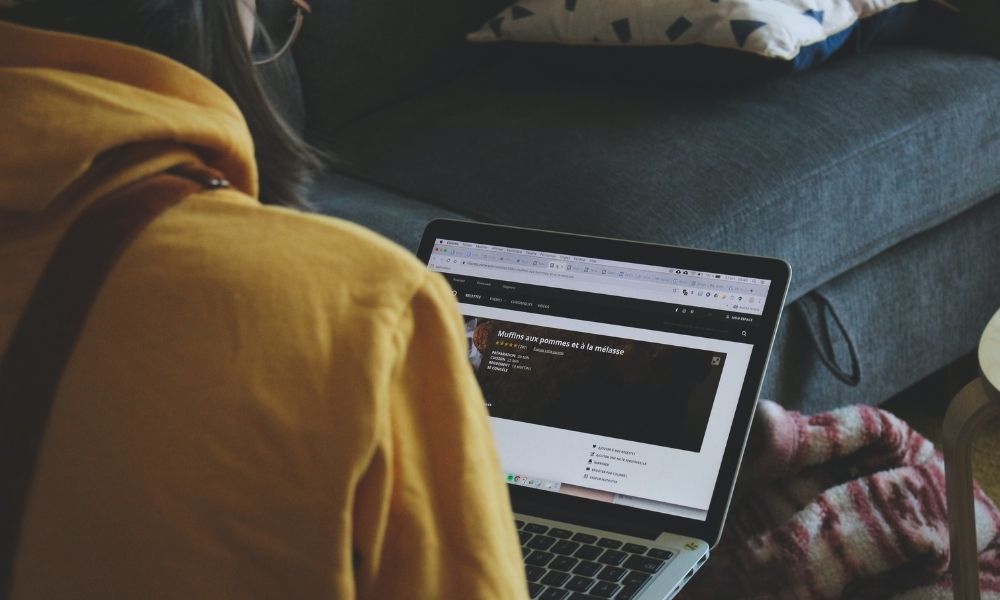
Image Credits: Unsplash
Online Sexual Abuses Among Women On Rise Amid Covid-19 Crisis
Writer: Tashafi Nazir
For most people, journalism sounds hectic and chaotic. For her, it's a passion she has been chasing for years. With an extensive media background, Tashafi believes in putting efforts on presenting a simple incident in the most interesting way.
India, 3 July 2021 12:28 PM GMT
Editor : Sanal M Sudevan |
Keen to explore new things and learn something new every day in the field of jounalism.
Creatives : Tashafi Nazir
For most people, journalism sounds hectic and chaotic. For her, it's a passion she has been chasing for years. With an extensive media background, Tashafi believes in putting efforts on presenting a simple incident in the most interesting way.
The virtual interactions in pandemic times have seen an upsurge in the already existing problem of sexual harassment. The online spaces have become more conducive for the offenders to carry out crimes as it becomes easy for them to pinpoint their prey quickly, which happens unlikely in crowded places.
The two back to back COVID-19 induced lockdowns have pushed everyone in India to the wall, restricting movements, shutting down educational institutions and forcing millions to work from home. In this scenario, online classrooms, work from home and virtual social interactions were considered to bring some respite for the womenfolk, considering how India receives rape and other cases related to sexual assault now and then. But the reality is something different.
The virtual interactions in pandemic times have seen an upsurge in the already existing problem of sexual harassment. The online spaces have become more conducive for the offenders to carry out crimes as it becomes easy for them to pinpoint their prey quickly, which happens unlikely in crowded places.
The experiences narrated by the victims while sharing their stories are terrifying. In most cases, the culprit is known to the victim.
Classrooms
Last month, there was an uproar in Tamil Nadu's capital city Chennai when a 59-year-old commerce teacher from the prestigious Padma Seshadri Bala Bhavan (PSBB) school was accused of sexual misconduct. Rajagopal would allegedly show up for his classes in a towel and send inappropriate content to the girl students. He was later arrested and booked under sections of the POCSO Act. In the wake of the recent incidents, the Tamil Nadu school education department set up a committee to develop appropriate guidelines for online classes and suggested a dress code for both faculty and students, besides recording, monitoring and random auditing teachers' behaviour. However, the cases are not confined to the particular state only.
According to The Times of India, a 15-year-old student from Rajasthan was recently booked to enter an online coding class and expose himself to the women instructors. In another incident, a teacher appeared half-naked in an online set-up of classes.
Offices
The condition is no different in offices, where complaints of harassment have risen in work from home scenarios. An employee appeared shirtless to a virtual meeting with his female manager. In a separate incident, another male employee insisted that a female colleague turns on her video in an impromptu 11 pm meeting, despite being uncomfortable.
Some websites offering consultations with doctors have become easily accessible for sexually harassing women doctors, with patients 'flashing', making lewd comments, masturbating or even sharing porn clips on the pretext of seeking consultation, The Times of India reported.
Politicians, Actresses Included
A report released by Amnesty International says women politicians in India face sexist abuse online, with nearly twice as much harassment than their counterparts in the U.K. or the U.S. 55% of the most aggressive trolling was directed at Muslim women leaders.
"These trolls … they are going after me regularly, routinely, for my skin colour, for my looks, telling me I'm not worth raping, what kind of torture and rape I should be subjected to, telling me what kind of men I should be sleeping with … and on and on and on, more and more," Kavita Krishnan, secretary of the All India Progressive Women's Association and member of the Communist Party of India Liberation told CNN.
n June 17, the Hyderabad cyber crime police issued notice to Twitter India on June 17 regarding online rape threats made to actress Meera Chopra on the social media platform. After allegedly being abused and harassed on social media after a 'Question and Answer' session with her followers, Meera had filed a case with her followers, News18 reported.
Survey
According to a recent nationwide survey conducted by Bumble, an American social media company, 83% of women in India experience online harassment of some kind, and 1 in 3 women surveyed in India experience it weekly. Nearly 60% of women surveyed said they feel unsafe, while 48% feel angry. 70% of women believe cyberbullying has been on the rise since the nationwide lockdown.
In January this year, National Commission for Women (NCW) Chairperson Rekha Sharma had told The Indian Express that cases of online harassment had seen an increase by five times since the outbreak of the pandemic.
"While earlier we would record 300 complaints of online harassment, this shot up to 1,500 posts the Covid-19 pandemic," she had said, adding that lack of "etiquettes of online working" need to be taught.
Also Read: India Ranks 10th In Global Cybersecurity Index: UN Study
 All section
All section














